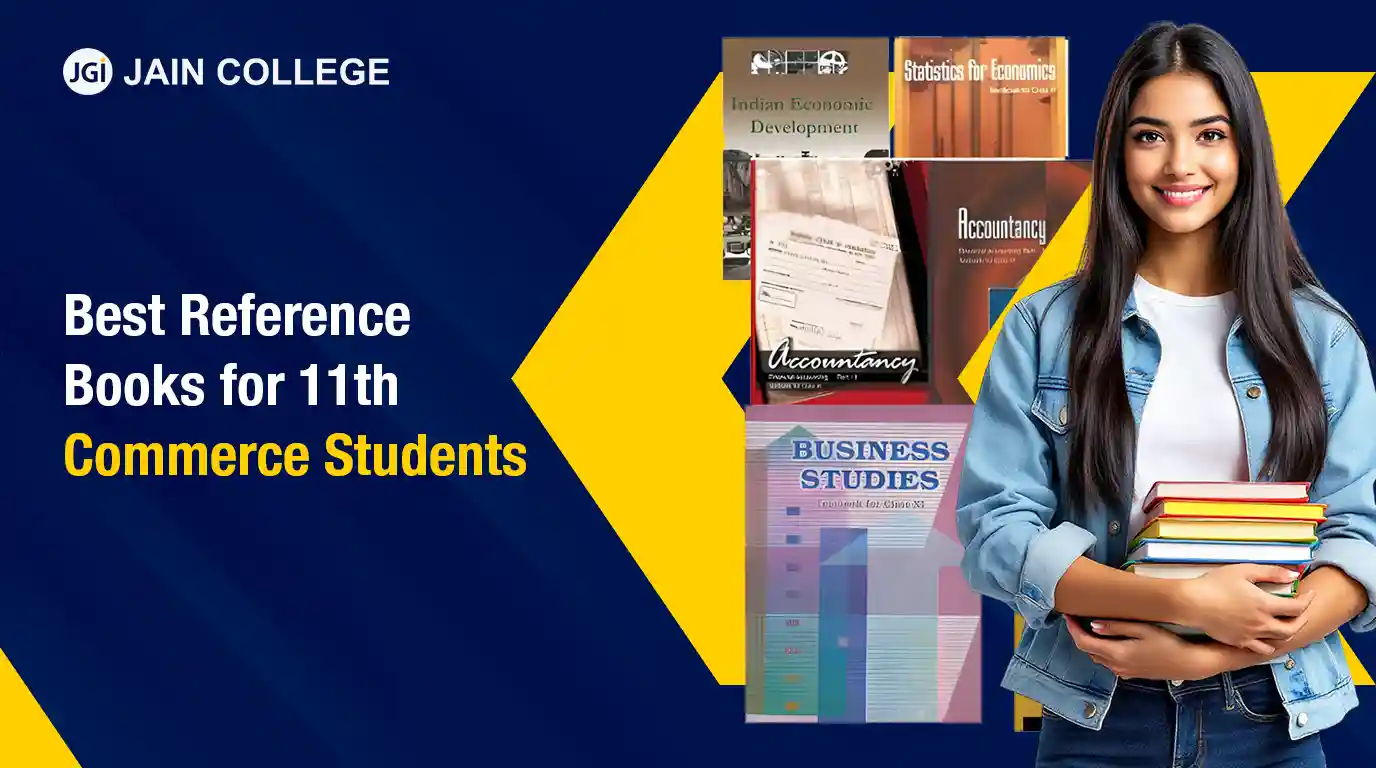
It is essential to start building a strong foundation from the 11th grade for Commerce. This year, students are introduced to some new subjects like Accountancy, which form the basis for the stream. The recommended National Council of Educational Research and Training (NCERT) textbooks cover the complete syllabus, but for additional explanations, examples and questions, there are several good reference books. Some books by noted academicians are necessary guides that can be used through the 11th and 12th grades and even graduation. In this blog, we will share the best reference books for 11th Commerce.
In the Commerce stream, Business Studies, Accountancy and English are compulsory subjects. Two elective subjects can be chosen from the following –
Some colleges even offer History and Political Science, among other social studies subjects, as an elective.
Further, there is a second language, and the choices vary between colleges. The options are –
In the PUC 11th grade, Accountancy topics such as the core concepts, practices and systems are introduced. The syllabus is divided into two parts – Part I and Part II. These two parts cover accounting theory, transaction records, trial balance, depreciation, financial statements, application of computers in accounting and Computerised Accounting Systems.
The recommended textbook for 11th grade Accountancy is NCERT’s Accountancy Part I – Financial Accounting and Accountancy Part II: Financial Accounting. Other than this, some books are recommended by students and Accountancy teachers. These are -
Business Studies, in 11th grade, covers the foundation of business, types of organisations and trade. The recommended text for 11th grade PUC Business Studies is NCERT’s Business Studies. Some recommended reference textbooks for this subject are -
Economics in 11th grade explores macroeconomic aspects of the Indian economy, such as liberalisation, privatisation and globalisation. This year, students will study about the meaning of poverty, the role of economics in rural development, infrastructure development, sustainable development and more. The primary textbook for Economics in 11th grade is Indian Economic Development by the National Council of Educational Research and Training (NCERT).
In 11th grade PUC, the Mathematics syllabus covers sets, relations and functions, trigonometry, algebra, calculus, probability and statistics, and mathematical reasoning. NCERT publishes the Mathematics textbook for Class 11. For additional explanation and practice problems, the following books are recommended for reference -
In 11th grade, Commerce students study Statistics for Economics. In this subject, they learn about the collection, organisation and presentation of data. They will study Index Numbers, Correlation and the use of statistical tools, among others. The recommended textbook is NCERT’s Statistics for Economics. Some reference books for this subject are -
English is the first language in PUC Commerce, and the 11th grade textbook for English is called “Reflections” – English Course Book for First Year Pre-University Course. For the grammar and composition portion, the recommended reference book is -
The 12th grade syllabus builds upon what is taught in 11th grade, and using reference books judiciously will clear many concepts of 12th grade, too. At JAIN College, students are given comprehensive notes to guide them with the syllabus. The college has an extensive library with instructional textbooks that students can refer to for self-study. Students are given regular assessments that help them analyse how well they have understood the concepts and the course expectations.
To check the Commerce course combinations at JAIN College, click here. For admission-related queries, click here.

JAIN PU College, a part of the renowned JGI Group, is committed to empowering students with quality education.
Beyond academics, the college ensures its online content reflects the same standard of excellence. Every blog and article is meticulously vetted and proofread by subject matter experts to ensure accuracy, relevance, and clarity. From insightful educational topics to engaging discussions, JAIN PU College's content is crafted to inform, inspire, and add value to its readers, reflecting the institution's commitment to intellectual growth and innovation.
View all Blogs